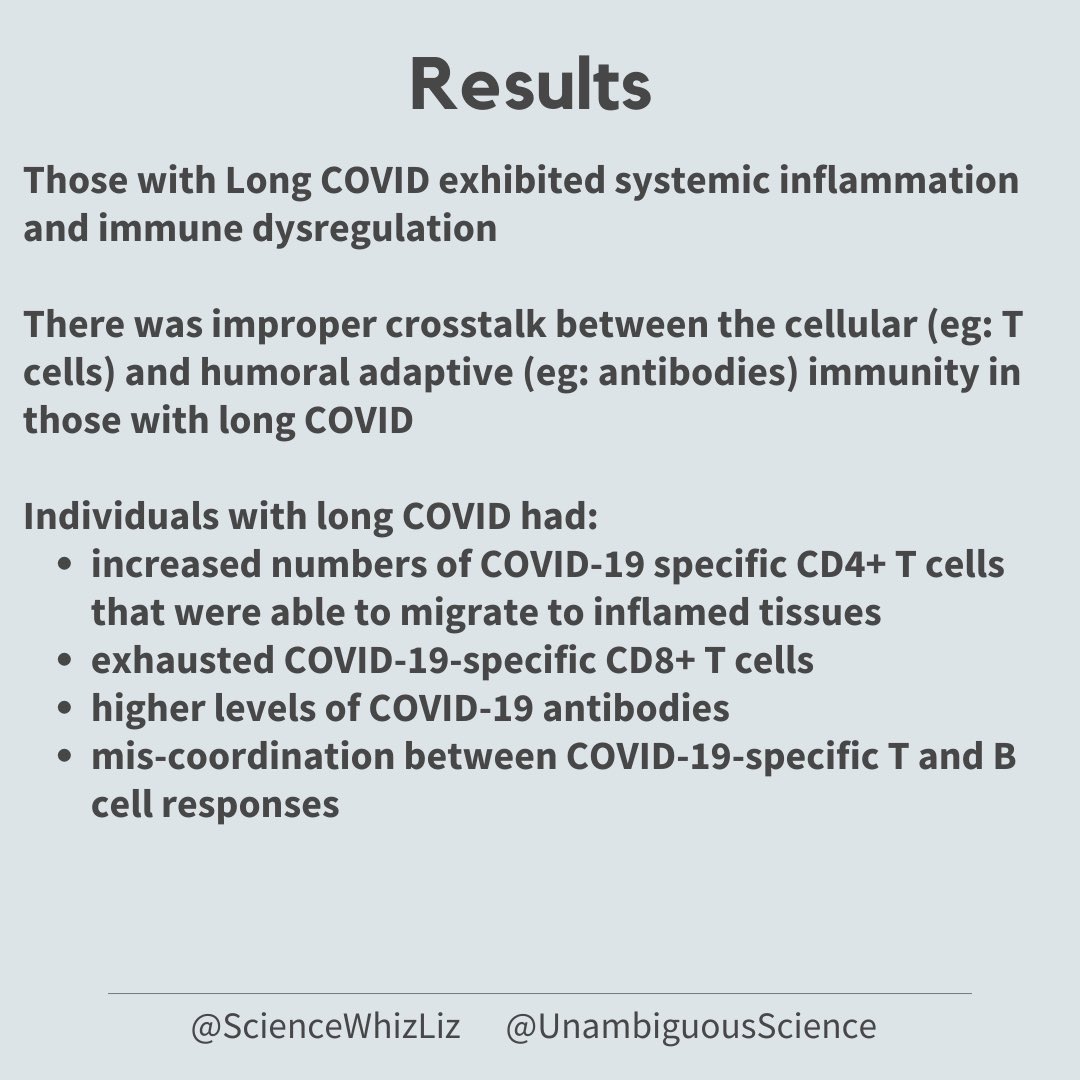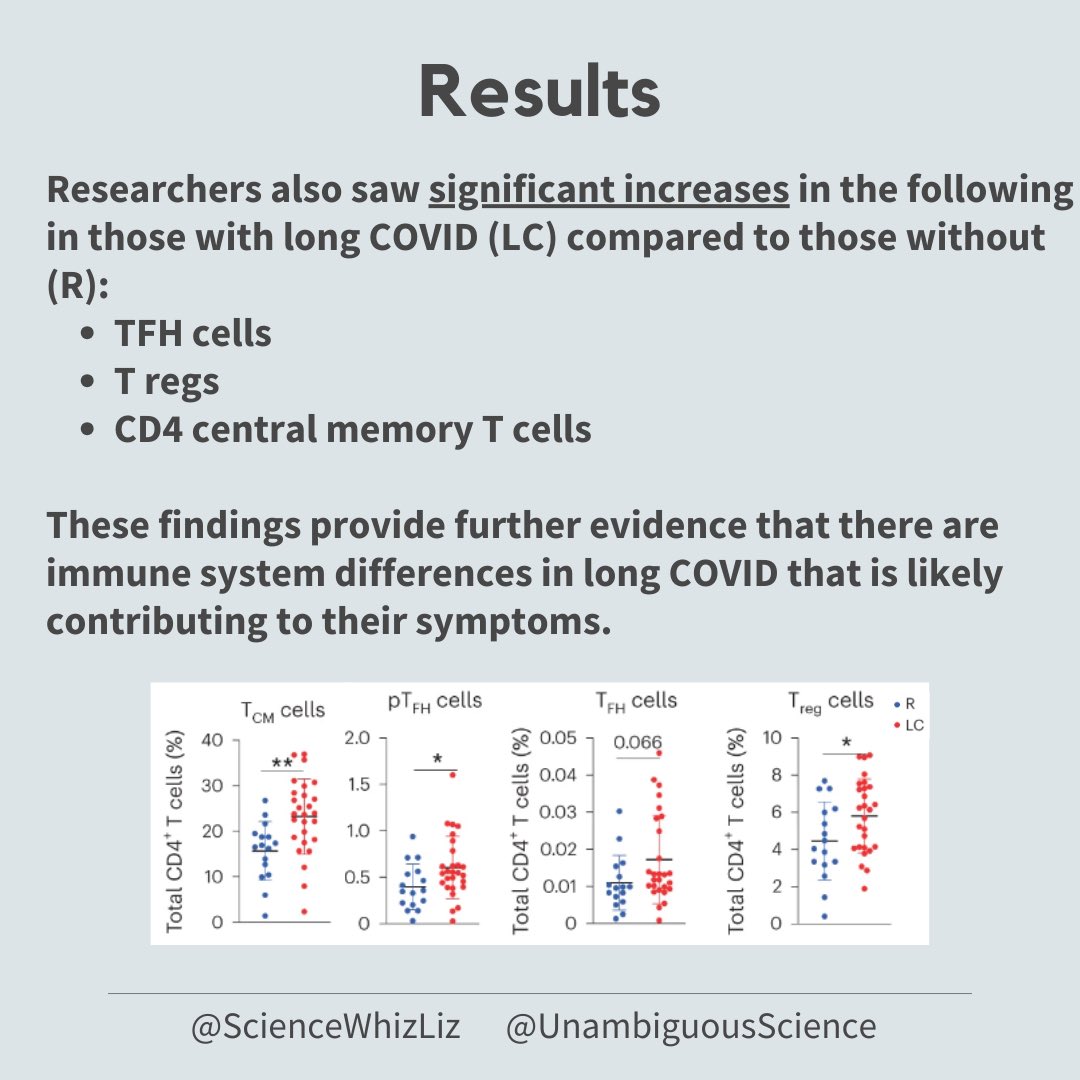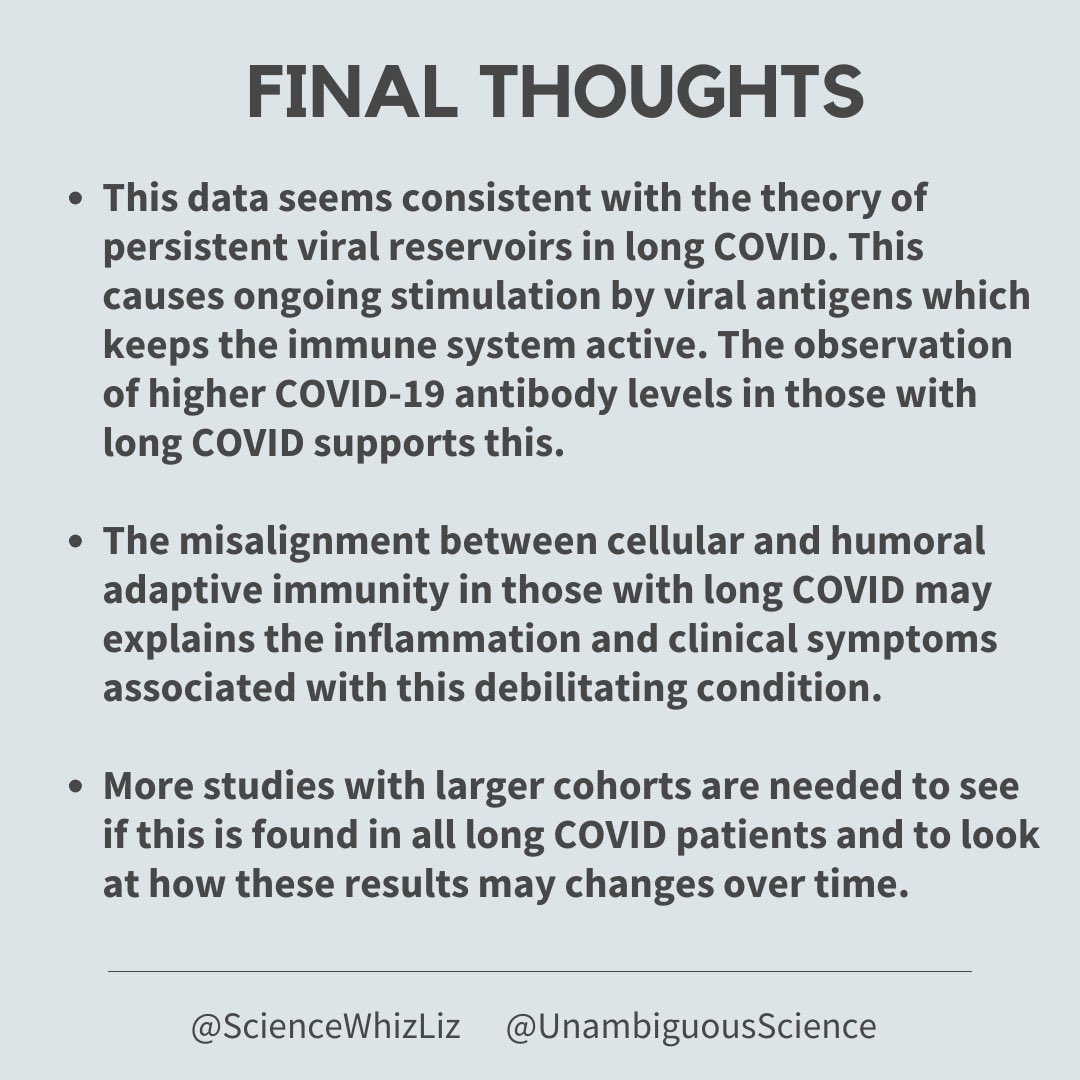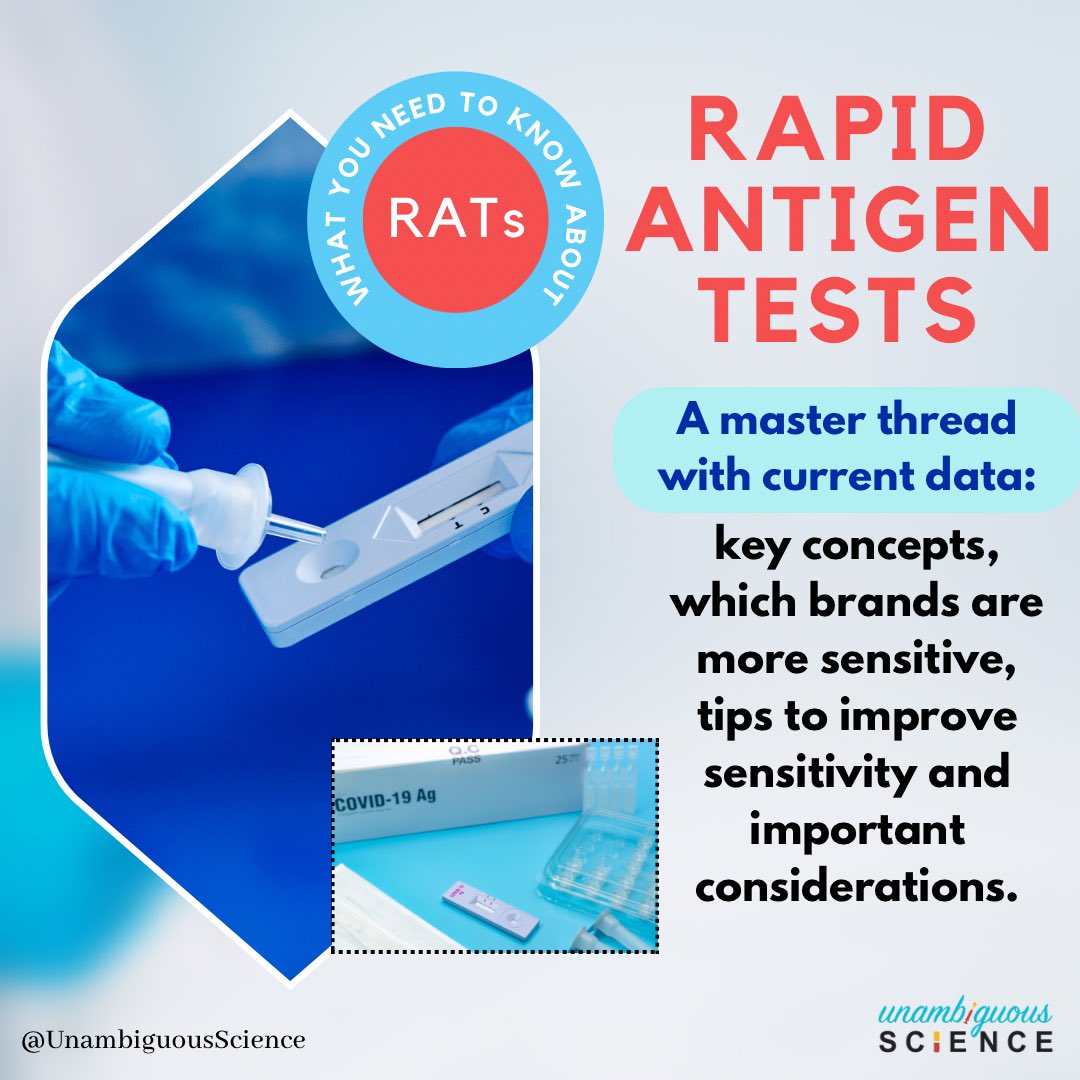Does Long Covid alter the immune system?
New evidence suggests this may indeed be the case.
Study summary in collaboration with @LizMarnik
1/7
New evidence suggests this may indeed be the case.
Study summary in collaboration with @LizMarnik
1/7

Samples were collected via a prospective observational study that enrolled individuals with prior SARS-CoV-2 infection with and without long COVID symptoms
3/7
3/7

Those with Long COVID exhibited systemic inflammation and immune dysregulation
There was improper crosstalk between the cellular and humoral adaptive immunity in those with long COVID
4/7
There was improper crosstalk between the cellular and humoral adaptive immunity in those with long COVID
4/7

These findings provide further evidence that there are immune system differences in long COVID that is likely contributing to their symptoms.
5/7
5/7

Limitations:
- Small small size
- long COVID is an umbrella term so may not apply to every long COVID patient
- data was only from 8 months after infection, need longer duration studies
6/7
- Small small size
- long COVID is an umbrella term so may not apply to every long COVID patient
- data was only from 8 months after infection, need longer duration studies
6/7

Final thoughts:
- This data seems consistent with the theory of persistent viral reservoirs in long COVID
- The misalignment b/w cellular & humoral adaptive immunity may explain inflammation & debilitating clinical symptoms in those with long COVID
7/7
- This data seems consistent with the theory of persistent viral reservoirs in long COVID
- The misalignment b/w cellular & humoral adaptive immunity may explain inflammation & debilitating clinical symptoms in those with long COVID
7/7

• • •
Missing some Tweet in this thread? You can try to
force a refresh























